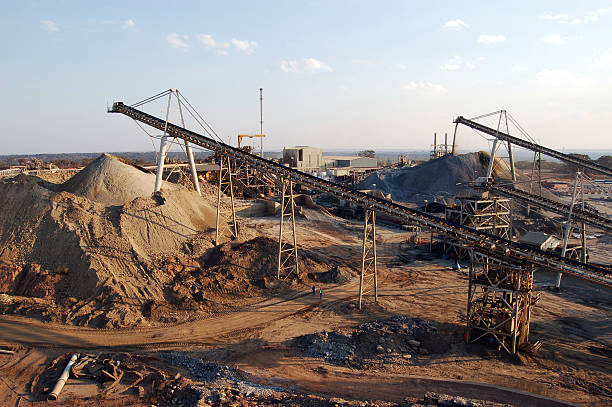Zambia, located in Southern Africa, is a country rich in natural resources and offers diverse investment opportunities. Over the years, the government has implemented policies aimed at attracting foreign direct investment (FDI) to spur economic growth and development. Here are the seven major investment options for investors in Zambia:
“Zambia offers diverse investment opportunities across several key sectors. The mining industry, especially in copper and cobalt, remains central to the economy. Agriculture benefits from abundant arable land, while the energy sector, particularly renewable energy, is ripe for expansion. Infrastructure development is crucial for the country’s growth, with opportunities in transportation and housing. Tourism leverages Zambia’s natural wonders like Victoria Falls, and the manufacturing sector is poised for growth through industrialization efforts. Finally, the financial services sector offers promising prospects, especially in digital finance and fintech. These sectors make Zambia an attractive destination for investors seeking diverse and profitable opportunities.”
1. Mining
Zambia is one of Africa’s top copper producers, and mining remains the backbone of the country’s economy. The mining sector presents lucrative opportunities, particularly in copper, cobalt, and gemstone extraction. The government encourages investment in this sector by providing favorable tax incentives and a relatively stable regulatory environment. With global demand for minerals on the rise, particularly those used in renewable energy technologies, the mining sector offers significant potential for growth.

2. Agriculture
Agriculture is another critical sector with vast potential due to Zambia’s abundant arable land, favorable climate, and water resources. Investment opportunities exist in crop production, livestock farming, agro-processing, and irrigation infrastructure. The government has prioritized agriculture as a key driver of economic diversification and food security, making it an attractive option for investors. The sector also benefits from regional and international trade agreements, offering access to broader markets.

3. Energy
Zambia’s energy sector, particularly renewable energy, presents substantial investment opportunities. With an increasing demand for electricity due to population growth and industrial expansion, the government is focused on expanding the energy supply. Hydropower remains the dominant source, but there is significant potential in solar, wind, and bioenergy. Investments in energy infrastructure, including transmission and distribution networks, are also needed to enhance the reliability and accessibility of power across the country.

4. Infrastructure Development
Zambia’s growing economy requires robust infrastructure, creating opportunities in sectors such as transportation, telecommunications, and housing. The government has initiated several public-private partnerships (PPPs) to develop roads, bridges, airports, and railways. Investors can also explore opportunities in the construction of commercial and residential properties, as urbanization continues to drive demand for real estate. Infrastructure development is vital for improving connectivity and supporting economic activities across various sectors.

5. Tourism
Zambia is home to some of Africa’s most spectacular natural attractions, including Victoria Falls, wildlife reserves, and national parks. The tourism sector offers opportunities for investment in eco-tourism, hospitality, and adventure tourism. The government’s efforts to market Zambia as a prime tourist destination, coupled with investments in infrastructure and conservation, have created a conducive environment for growth in this sector. Tourism also has the potential to create jobs and contribute to rural development.

6. Manufacturing
Zambia’s manufacturing sector is growing, driven by demand for consumer goods, construction materials, and agricultural inputs. Investment opportunities exist in the production of food and beverages, textiles, chemicals, and construction materials. The government’s industrialization agenda aims to add value to raw materials produced locally, reducing dependency on imports and promoting exports. With access to regional markets through the Southern African Development Community (SADC) and Common Market for Eastern and Southern Africa (COMESA), the manufacturing sector is poised for expansion.

7. Financial Services
Zambia’s financial sector has experienced significant growth and offers various investment opportunities, particularly in banking, insurance, microfinance, and fintech. The increasing adoption of digital financial services presents opportunities for innovation and expansion. The government’s efforts to enhance financial inclusion, coupled with a growing middle class, create a favorable environment for investments in this sector. Additionally, Zambia’s stable financial system and regulatory framework make it an attractive destination for financial services investments.

Zambia offers a diverse range of investment opportunities across various sectors. The government’s commitment to economic reform, coupled with its strategic location and wealth of natural resources, makes the country an attractive destination for investors. By exploring these key sectors, investors can contribute to Zambia’s economic growth while benefiting from the opportunities available in this emerging market.


